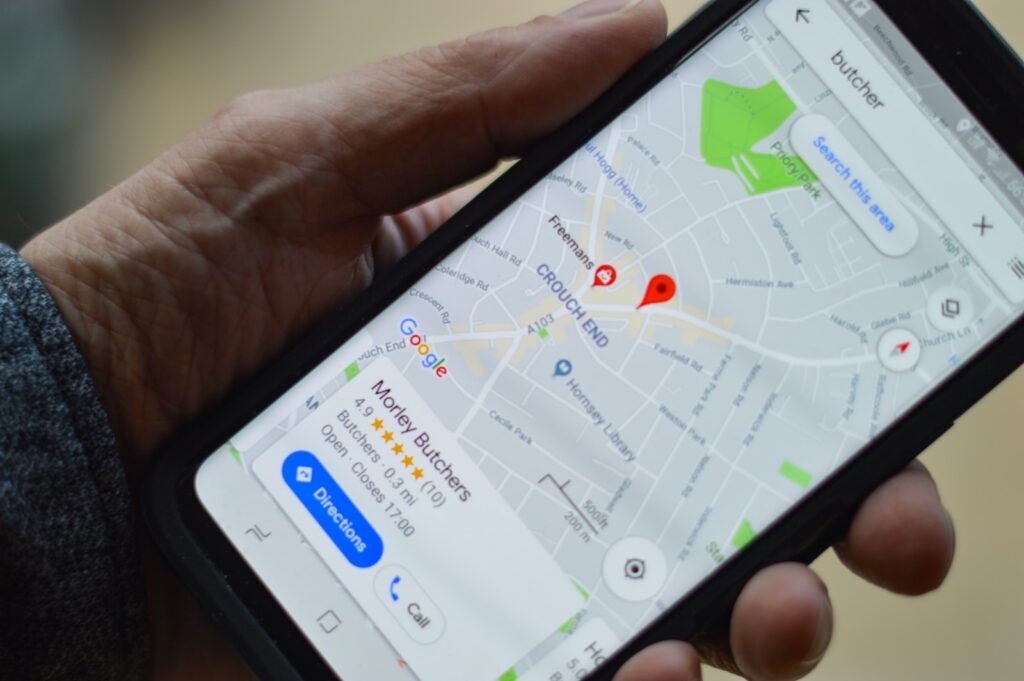Local SEO (Search Engine Optimization) is an online marketing strategy that aims to optimize a website to appear higher in local search engine results pages (SERPs). Many online companies would like to sell products and services internationally. But more often than not, local orders contribute a huge chunk to their revenues. If they want to target these local customers, they have to try something called local SEO. Local search engine optimization is essential for businesses with a physical location or brick-and-mortar store that serve a particular area or city.
The primary goal here, is to rank the website higher in local search engine results by targeting specific geographical locations. Local SEO involves a range of techniques such as optimizing website content and metadata, claiming and optimizing Google My Business listing, creating location-based content, and building local citations and backlinks.
By implementing certain strategies, businesses can increase their online visibility and attract more local customers through online search. Local SEO is crucial for any business that relies on local customers, such as restaurants, plumbers, dentists, and retail stores.
10 ways to use local SEO to improve your business
- Local SEO is essential for businesses that rely on foot traffic and local customers. Here are ten ways to improve your local SEO:
- Claim your Google My Business listing: This is a free tool that allows you to manage your business information and appear in Google Maps and local search results.
- Optimize your website for local keywords: Use keywords that are relevant to your location and business in your website content, titles, and meta descriptions.
- Use location pages: Create dedicated pages for each location of your business to help search engines understand that you have a presence in multiple locations.
- Get listed in local directories: Get listed in local business directories and industry-specific directories. This helps increase your visibility and credibility.
- Encourage customer reviews: Reviews show up in search results and can influence customers. Encourage customers to leave reviews on Google and other review sites.
- Use social media: Use social media to engage with local customers and share content that’s relevant to your location.
- Optimize for mobile: More and more people are searching on mobile devices. Make sure your website is mobile-friendly and loads quickly.
- Get backlinks from local sources: Backlinks from local sources can help improve your visibility in local search results. Try to get backlinks from local news sources, blogs, and organizations.
- Use schema markup: Schema markup helps search engines understand your content better, including your business location and contact information.
- Monitor your performance: Use tools like Google Analytics and Google Search Console to monitor your local SEO performance and track your progress.
Things to avoid in local SEO
Local SEO is crucial for any business that wants to reach and engage with their local audience. However, there are certain things that businesses should avoid doing when it comes to local SEO. Here are some of the things that you should not do in local SEO:
- Stuffing your content with keywords: It’s important to include relevant keywords in your content, but overusing them can harm your local SEO efforts. Keyword stuffing can lead to penalties from search engines and negatively impact your website’s ranking.
- Neglecting online directories: Many businesses overlook the importance of online directories such as Google My Business, Yelp, and Bing Places. These directories help customers find your business and can improve your local SEO, so it’s essential to claim and optimize your business listing in each one.
- Ignoring customer reviews: Customer reviews play a significant role in local SEO. Positive reviews can improve your business’s visibility in search results and attract more customers. Ignoring or deleting negative reviews can harm your business’s reputation and make potential customers hesitant to visit.
- Inconsistent NAP information: NAP (name, address, and phone number) consistency is critical for local SEO. Inconsistent or inaccurate information can confuse search engines and harm your website’s ranking. Make sure your NAP information is consistent across all directories and platforms.
- Focusing only on keywords and content: While keywords and content are essential for local SEO, they’re not the only factors that search engines consider. Other factors such as website speed, mobile-friendliness, and backlinks also influence your ranking. Make sure to pay attention to all aspects of SEO to improve your local visibility.
In summary, businesses should avoid keyword stuffing, neglecting online directories, ignoring customer reviews, inconsistent NAP information, and focusing only on keywords and content in local SEO. These practices can harm your local SEO efforts and negatively impact your business’s online presence.
Conclusion
In conclusion, local SEO is a critical aspect of any business’s online marketing strategy. By optimizing your website and online presence for local search terms, you can improve your visibility and reach among local customers who are searching for your products or services. This can ultimately lead to more website traffic, foot traffic to your physical location, and increased revenue.
To successfully implement it, it’s important to ensure that your website is optimized for local search terms, includes accurate and up-to-date business information, and has strong customer reviews. You should also utilize other tactics such as creating local content, building local backlinks, and engaging with local directories and review sites.
Overall, local SEO requires ongoing effort and attention, but the benefits are well worth the investment. By improving your local search presence, you can establish your business as a leading authority in your area, attract more customers, and ultimately grow your business.

